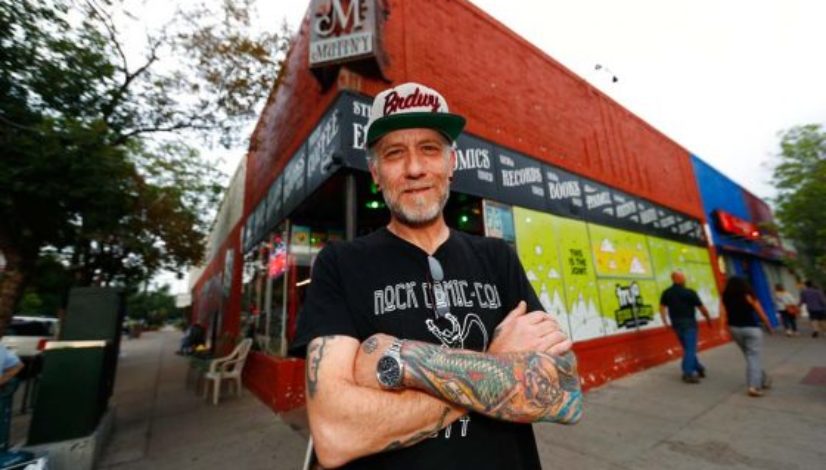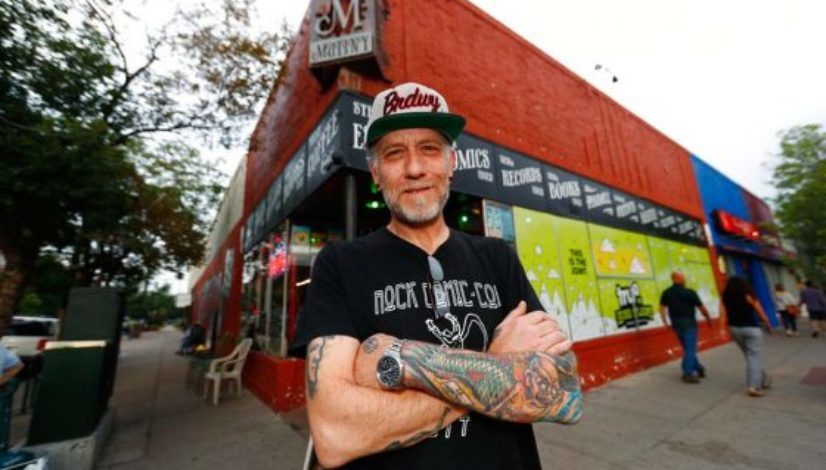Social use marijuana clubs will soon be legal in Denver, but how many will open?

Published: Aug 22, 2017, 9:02 am • Updated: Aug 22, 2017, 9:55 am
By Kristen Nichols, The Associated Press
DENVER — Colorado’s largest city is on the brink of licensing some of the nation’s first legal marijuana clubs.
But Denver’s elaborate hurdles for potential weed-friendly coffee shops and gathering places may mean the city gets few takers for the new licenses.
Denver voters approved bring-your-own-pot clubs in a ballot measure last year after city officials’ dragged their feet on calls to give legal pot smokers a place to use the drug. The city plans to start accepting applications by the end of the month.
“There are plenty of places where you can consume alcohol. Let’s give people a place to go to consume marijuana,” said Jordan Person, head of Denver NORML, which advocates for pot-friendly public policy.
But Denver’s would-be “social use” clubs have faced one delay after another.
First, the state liquor board prohibited pot use at any place with a liquor license, making bars and many restaurants off-limits. And pot shops can’t allow consumption on the premises.
That left gathering places like coffee shops, art galleries and yoga studios. Furthermore, would-be clubs must stay twice as far as liquor stores from schools and anywhere children congregate, including playgrounds and sports fields.
Related stories
- Las Vegas threatens to close weed businesses that promote public consumption
- Seattle targets HempFest, then drops it
- Cannabist Show: He has a 420-friendly event space ready to go while Denver figures out social use
- Cannabis on the Colorado border: Trinidad sued after enacting pot club moratorium
- “Bonanza” for Las Vegas: Nevada Sen. Tick Segerblom talks social use, cannabis law issues in Denver
“We can’t be in places where it makes sense,” said Kayvan Khalatbari, a Denver marijuana consultant who helped run last year’s club campaign.
City officials say the rules are as flexible as possible given stiff resistance from some community groups and marijuana skeptics.
The voter-approved club measure also says the club licenses are a pilot program and neighborhood groups must agree to allow a club before it could open.
“There were no surprises in the rules,” said Dan Rowland, spokesman for the Denver department that regulates marijuana businesses. “They reflect all the comments we got from the community.”
One hopeful applicant says the regulations are stringent but still a step forward for the
industry.
“A lot of us are hoping this will … open the doors for a new kind of business,” said Connor Lux, who runs a co-work space for the cannabis industry and plans to apply for a social use license to hold public, weed-friendly events at his business just north of downtown Denver. Applying for a license costs $1,000; the licenses itself is $1,000 a year.
Lux envisions open-to-the-public networking events at his space.
“I don’t think anyone’s planning a giant smoke-out, everybody-coming-to-get-high kind of thing,” he said.
Khalatbari has sued Colorado’s liquor regulators over the ban on pot and alcohol in the same location, a lawsuit that hasn’t yet been heard, and says he is considering a lawsuit against the city for what he believes are onerous club rules.
Khalatbari noted Denver has much looser distance requirements for places selling alcohol, even allowing bicycle bars to cruise past schools and churches. The mobile bars with drivers ferry groups of pedaling drinkers from one tavern to the next.
“You can ride these stupid moronic bike bars down the street, getting hammered in public. But we’re not giving people a safer choice, even though voters have said over and over again they want to go that way,” Khalatbari said.
Colorado’s marijuana law neither allows nor denies pot clubs, leaving the state with a patchwork of local club rules. Some cities tolerate them; in others, clubs operate underground, with members arranging meetups using social media.
State lawmakers earlier this year decided against a plan to regulate marijuana clubs statewide. Democratic Gov. John Hickenlooper warned that passing the measure could invite a federal crackdown.
The situation is similar in other legal-pot states.
Alaska’s 2014 marijuana measure allowed for on-site pot consumption at potential “tasting rooms,” though regulators in that state have yet to allow any to open.
And measures approved last year in California and Massachusetts allowed for pot clubs, but both states are still working out rules.
Person, the marijuana activist, said she’s hopeful that Denver’s limited rules will prove a step forward in a national move toward marijuana acceptance.
“People still aren’t sure how this is going to work or what’s going to be allowed. But this is progress,” she said.
Topics: Colorado, Denver, Initiative 300, kayvan khalatbari, pot clubs, public consumption, social use




